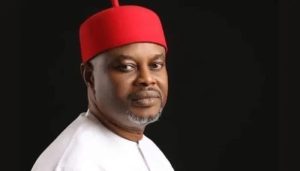Lagos, 28 July 2025 – Former Labour Party presidential candidate Peter Obi has launched a scathing attack on President Bola Tinubu, accusing him of manipulating economic data to obscure Nigeria’s deepening economic woes, including widespread hunger and hardship. In a post on X (formerly Twitter) earlier today, Obi highlighted the irony of Tinubu’s 2022 campaign rhetoric, where he dismissed statistics in favour of focusing on food security, only to now rely on what Obi calls “wrong statistics” to paint a rosier picture.
Obi’s statement referenced a November 2022 campaign rally in Delta State, during which Tinubu, then the All Progressives Congress, APC, presidential candidate, criticised an unnamed rival—widely understood to be Obi—saying, “Na statistics we go chop? All I want is to put food on the table of Nigerians.” Obi, who contested the 2023 election and came third, argued that two years into Tinubu’s four-year term, the country has deteriorated significantly. “Nigeria is classified as one of the hungriest nations in the world with millions of Nigerians not knowing where their next meal will come from,” he wrote.
According to the 2024 Global Hunger Index, Nigeria scores 28.8, indicating a “serious” level of hunger, and ranks 110th out of 127 countries. This places it among nations like Zimbabwe and Mozambique, with undernourishment affecting around 18% of the population in recent years. Obi linked this to broader economic failures, claiming Tinubu is “overfeeding Nigerians with wrong statistics from wrong unemployment figures, wrong inflation figures, and now GDP rebasing, all to put a positive spin on our deteriorating economic and household conditions.”
Nigeria’s economic indicators have been a point of contention. The National Bureau of Statistics recently rebased the GDP using 2019 as the new base year, incorporating previously underrepresented sectors such as e-commerce and entertainment. This adjustment increased the estimated GDP to N372.8 trillion (approximately $243 billion) for 2024, making Nigeria Africa’s fourth-largest economy and showing a 3.13% year-on-year growth in the first quarter of 2025. Supporters of the rebasing argue it provides a more accurate reflection of the economy, improving metrics like the debt-to-GDP ratio. However, critics, including Obi, view it as a cosmetic exercise amid rising poverty.
Unemployment figures have also sparked debate. The official rate fell to 4.3% in the second quarter of 2024 following a methodological change by the statistics office, which now includes “time-related underemployment” at 9.2%. Yet, international estimates paint a grimmer picture: the International Monetary Fund projects 22.6% unemployment for 2025, while other sources suggest it could reach 30.23%. Inflation, meanwhile, has eased slightly to 22.22% in June 2025 from 22.97% in May, driven by base effects, but remains elevated, with food inflation at 26.60%. Analysts attribute the moderation to policy measures, though high costs continue to burden households.
Obi concluded his post by emphasising that “governance is not rocket science, it’s not a gamble… it requires sincerity of purpose, character, competence, capacity and compassion.






